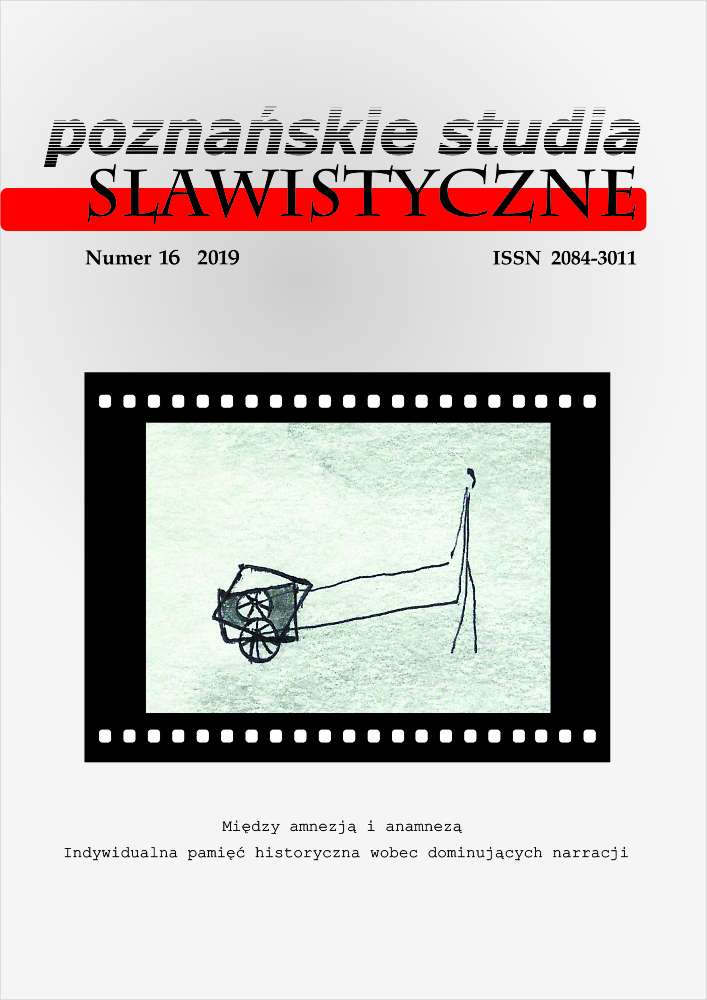Abstrakt
This article examines the wartime texts produced by two deeply believing Catholics – Jerzy Andrzejewski and Czesław Miłosz. In 1942, at the time of the deportations to Treblinka, these young but already prominent Warsaw men of letters and believing Catholics engaged in a correspondence which examined the ethical crisis of the Jewish genocide and its impact on Christian humanism. Miłosz and Andrzejewski followed their epistolary exchange with literary responses to the 1943 Ghetto Uprising. Whereas the letters conceptualized possibilities of moral restoration, the literary works – Miłosz’s two poems, Campo di Fiori and Biedny Chrześjanin patrzy na getto (A Poor Christian Looks at the Ghetto) and Andrzejewski’s novella Wielki Tydzień (Holy Week) – focused on the devastating impact of the Jewish genocide on their Polish Catholic world. These literary works see the event of the Holocaust as an irrevocable failure of the Catholic dogmas of caritas and love for the Other.Bibliografia
Allen, R.E. (1959). Anamnesis in Plato’s Meno and Phaedo. “The Review of Metaphysics” vol. 13, no. 1, p. 165.
Andrzejewski, J. (1987). Z dnia na dzień. Warszawa: Biblioteka “Więzi”.
Austin, M.W. (2013). Kierkegaard: Understanding the Christian Father of Existentialism. “Christian Research Journal” vol. 36, no. 3.
Błoński, J., Edelman, M., Miłosz, C., Turowicz, J. (2012). Campo di Fiori’ Fifty Years Later: The People Who Remain. Trans. J. Gromek-Illg, “Polin” vol. 24, p. 414.
Chmielewska, K., Molisak, A. (eds.) (2017). Monuments of Memory: Places of Obli¬vion (Pomniki pamięci: Miejsca niepamięci). Warszawa: Instytut Badań Literackich PAN.
Czarnecka, E., Fiut, A. (1987). Conversations with Czesław Miłosz. Trans. R. Lourie. San Diego: Harcourt Brace Jovanovich.
Distorting and Rewriting the History of the Holocaust in Poland: The Case of the Ulma Family Museum of Poles Saving Jews during
World War II in Markowa. (2017). “Yad Vashem Studies” vol. 45, no 1, pp. 29–60.
Freud, S. (1930). Civilization and Its Discontents. London: The Hogarth Press.
Miłosz, C. (2005). Legends of Modernity: Essays and Letters from Occupied Poland, 1942–1943. Trans. M.G. Levine. New York: Farrar Strauss Giroux.
Miłosz, C. (2007). Holy Week: A Novel of the Warsaw Uprising. Trans. O.E. Swan and Students. Athens: Ohio University Press.
Polonsky, A. (ed.) (1987). Polin: Studies in Polish Jewry. Liverpool: Liverpool University Press.
Polonsky, A. (ed.) (1990). My Brother’s Keeper? Recent Polish Debates on the Holocaust. London: Routledge.
Rourke, T.R., Chazarreta Rourke, R.A. (2007). The Theory of Personalism. Lanham: Lexington Books.
Williams, T.D. (2004). What is Thomistic Personalism? “Alpha Omega” VII, no. 2, pp. 192–197.
Wojtyła, K. (1963). Introduction. In: J. Turowicz. Chrześcijanin w dzisiejszym świecie. Kraków: Wydawnictwo Znak, pp. 8–9.
Licencja

Utwór dostępny jest na licencji Creative Commons Uznanie autorstwa – Bez utworów zależnych 4.0 Międzynarodowe.

